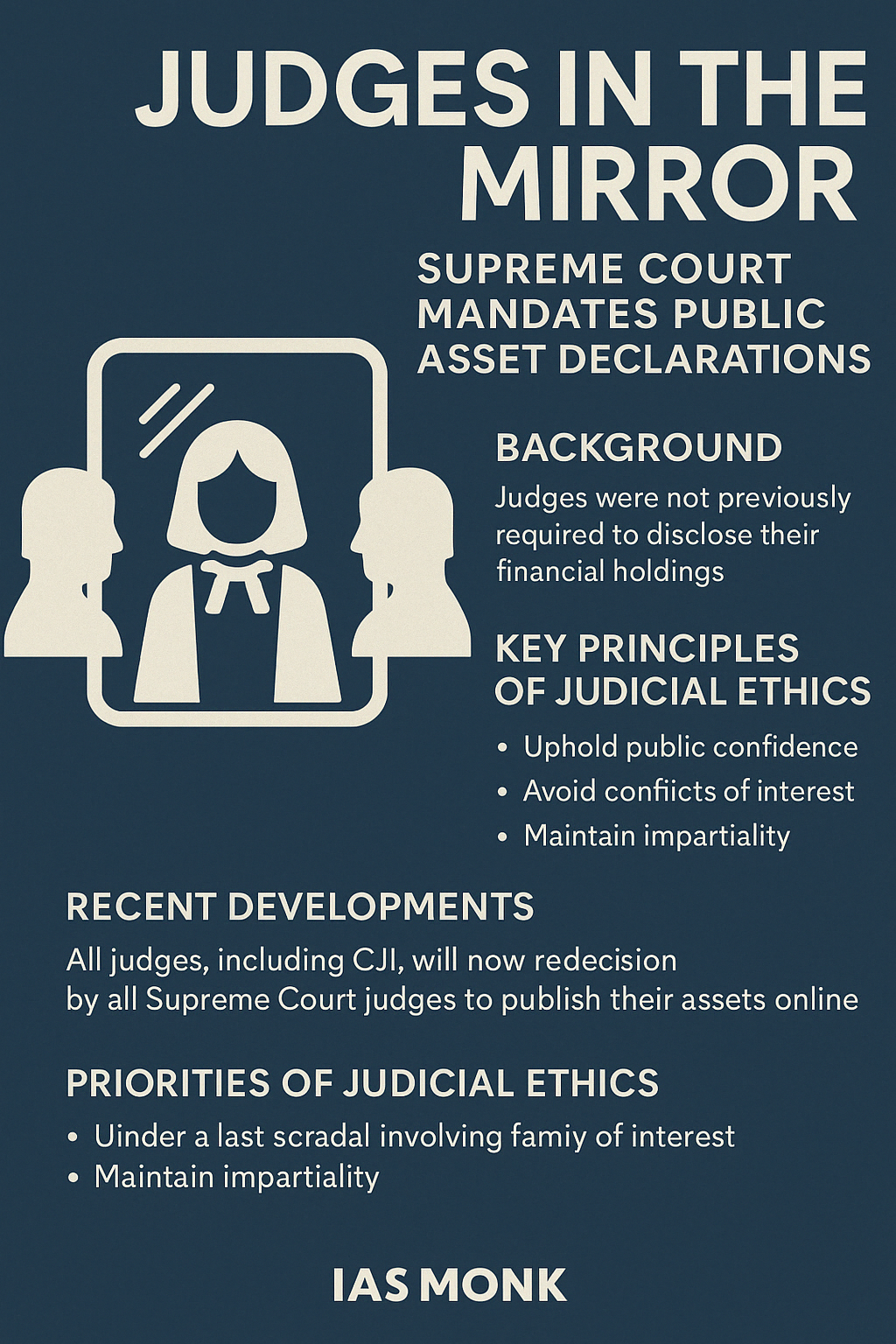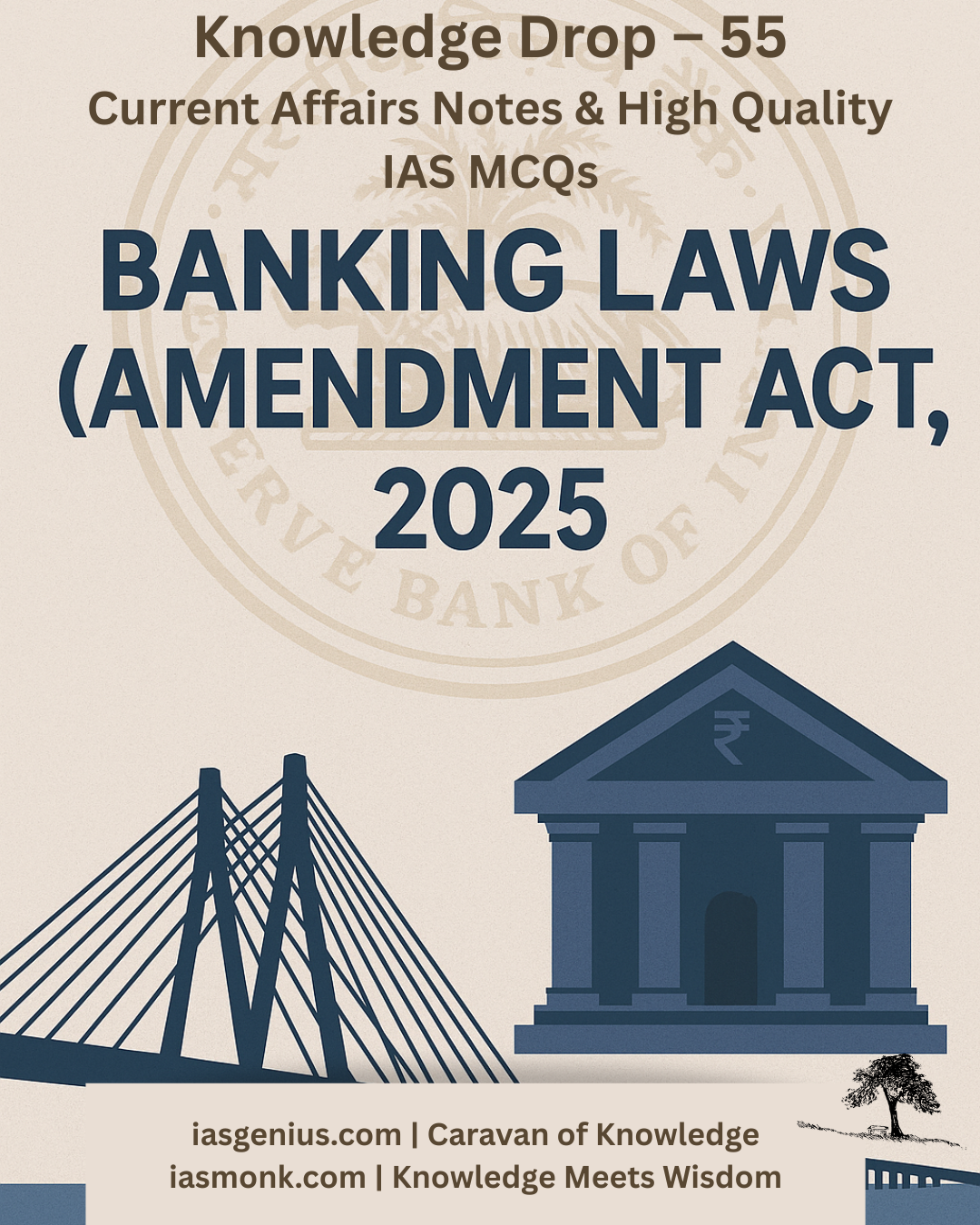
008 – Apr 7, 2025
Judges in the Mirror: Supreme Court Mandates Public Asset Declarations⚖️

🧭 Thematic Focus
Category: Governance | Ethics in Public Life | Judicial Reform
GS Paper: GS Paper II – Polity & Constitution | Transparency and Accountability in Institutions
Tagline: When justice lifts its veil, trust begins to grow.
⚖️ Intro
In a landmark decision that echoes the call for cleaner public institutions, the Supreme Court of India has ruled that all judges, including the Chief Justice, must publicly declare their assets.
This comes in the wake of a corruption scandal involving a Delhi High Court judge, reaffirming that even the guardians of law must be open to scrutiny.
🔍 Key Highlights
- New Mandate:
- All sitting judges must now publicly disclose financial assets
- Applies to Supreme Court, High Courts, and includes the CJI
- Aims to restore public confidence amid concerns of judicial opacity
- Backdrop: Judicial Accountability Movement:
- Anchored in the 1997 Restatement of Values of Judicial Life
- 16-point code outlining ethical conduct for judges
- Focus areas: impartiality, restraint, integrity, non-partisanship
- Restatement Principles:
- Judges must:
- Avoid political expression
- Disclose conflicts of interest (including family legal careers)
- Maintain public decorum and independence
- Judges must:
- Asset Declaration Evolution:
- 2009: Supreme Court allows voluntary asset disclosure
- 2018: Constitution Bench rules asset info is not private under RTI
- 2025: Full Court decision to make disclosures mandatory and public
- In-House Inquiry System:
- Internal mechanism to address judicial misconduct
- Offers a route short of impeachment
- Has been invoked in multiple cases to maintain judicial integrity
- Recent Scandal & Public Response:
- Delhi High Court judge found with unexplained cash hoard
- Prompted urgent calls for judicial transparency and reform
- Implications Going Forward:
- Strengthens trust in the judiciary
- Empowers civil society and RTI-based accountability
- Sets precedent for reform in other constitutional institutions
🧠 Concept Explainer: Why This Matters
Judges are the final arbiters of constitutional morality.
But in a democracy, credibility is not inherited—it is earned.
Public asset declaration is not about suspicion; it is about faith made visible.
🗺️ GS Paper Mapping
- GS Paper II – Judiciary, Ethics, Transparency
- GS Paper IV – Integrity of Public Functionaries
- Essay Themes – “Justice and the Mirror,” “Ethics in Robes”
💭 A Thought Spark — by IAS Monk
“The law does not bend to gold.
But it must also not hide the hands that hold it.”


















